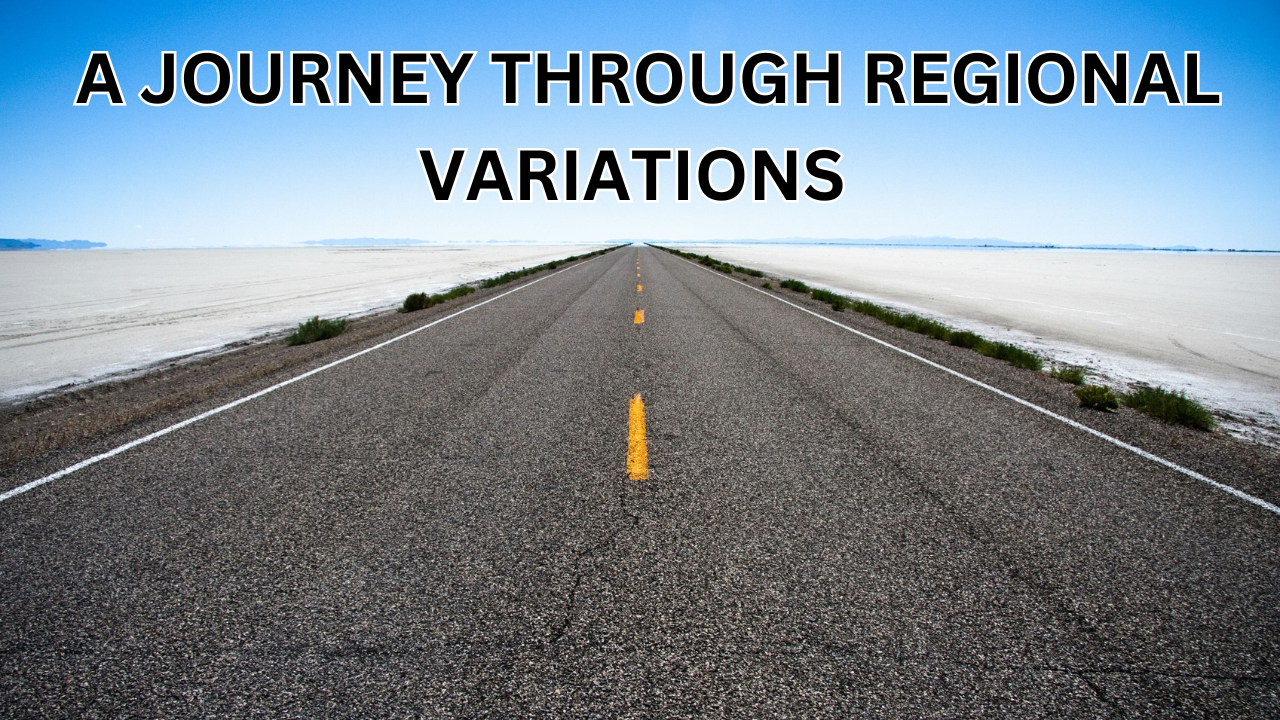A journey through regional variations offers a fascinating glimpse into the diversity that defines human culture every region has its distinct character shaped by centuries of history geography and social evolution these variations manifest in countless ways through language traditions art and even the way people express emotions or solve problems exploring regional differences is like opening a window to the world rich identities revealing how shared human experiences are uniquely interpreted across communities language for instance serves as a profound marker of regional identity with dialects and accents often embodying the spirit of a place.
Reflect local resources and values offering a delicious narrative of a region past and present beyond aesthetics regional variations also foster innovation as diverse perspectives and approaches enrich collective problem-solving and creativity in an increasingly globalized world these unique traits face the challenge of assimilation and homogenization making it all the more important to preserve and celebrate regional distinctions understanding and appreciating these variations not only deepen our connection to the world but also reminds us of the beauty of diversity and the importance of embracing what makes each region special.
Types of Regional Variation:
Regional variations encompass a wide array of differences that distinguish one area or community from another reflecting the richness of human diversity these variations are most commonly seen in a language where dialects accents and vocabulary reveal unique local expressions and cultural nuances Beyond language regional cuisine stands out as a vibrant marker of identity with flavors ingredients and cooking methods tailored to the geography and climate of a region traditional clothing also reflects regional distinctions often tied to historical influences climate and cultural values.
Artistic expressions from music and dance to architecture and crafts further highlight the creative spirit of a region showcasing how local resources and traditions influence creative output social customs and etiquette also vary widely with practices and norms shaped by the community’s history religion, and environment even within a single nation variation in economic activities political preferences, and educational approaches often emerge driven by regional needs and priorities natural landscapes and climates contribute to regional identities influencing lifestyles and cultural practices.
Causes of Regional Variation:
Regional variation arises from a complex interplay of historical geographical cultural social and environmental factors each contributing uniquely to the distinct characteristics of a place Geography plays a foundational role as the physical landscape of mountains rivers forests, and plains shape the way communities develop for instance regions with fertile land might focus on agriculture while those near coastlines may rely on fishing or trade influencing local economies and lifestyles the climate also plays a significant part in dictating clothing styles dietary choices and even architectural designs suited to specific conditions.
History leaves its imprint through colonization migration and trade introducing new ideas languages and traditions that blend with local practices cultural and religious influences further shape regional identities as belief systems and rituals evolve uniquely in different areas over time language diversity often results from historical migrations and isolation creating dialects and linguistic nuances social and political systems impact regional variation as differing governance education levels and infrastructure creates disparities in opportunities and development.
Effects of Regional Variation on Culture and Identity:
Regional variations significantly influence culture and identity shaping how individuals and communities define themselves and interact with the world differences in geography climate history and social norms contribute to the development of unique traditions languages and practices that distinguish one region from another for instance, cuisine often reflects the ingredients available in a specific area while traditional clothing might be adapted to the local climate these cultural markers foster a sense of belonging and pride among people strengthening their collective identity.
These variations also create challenges such as misunderstandings or biases when people from diverse regions interact the interplay of local customs with global influences further complicates this dynamic as modernization and globalization can sometimes dilute regional distinctiveness despite these challenges regional differences enrich the human experience by promoting diversity fostering creativity, and encouraging the exchange of ideas understanding and appreciating these variations can bridge cultural gaps allowing for more inclusive and harmonious societies.
Regional Pride:
Regional pride is a deep sense of connection and admiration individuals feel toward their home region often rooted in shared history culture, and traditions this pride is reflected in various aspects such as celebrating local festivals preserving traditional art forms supporting regional sports teams, or promoting unique culinary practices it fosters a collective identity among people creating a bond that transcends individual differences regional pride can inspire communities to preserve their heritage invest in local development, and showcase their uniqueness to the broader world.
It also comes with challenges as excessive pride can sometimes lead to insularity or tensions with other regions balancing pride with openness is essential to ensure that it becomes a source of strength rather than division when nurtured positively regional pride not only enhances individual and collective identity but also contributes to a richer more diverse cultural tapestry celebrating the distinctiveness that each region brings to the global stage.
